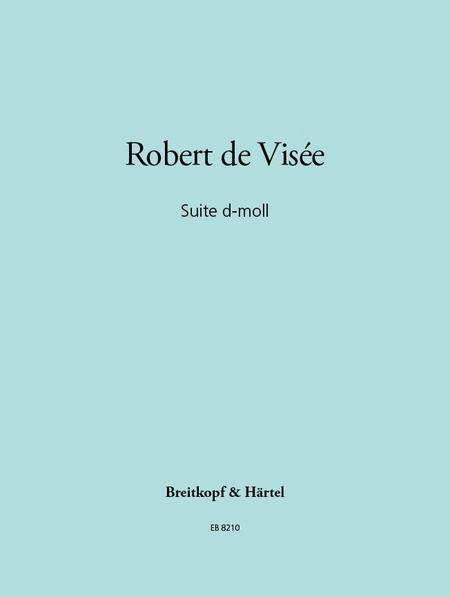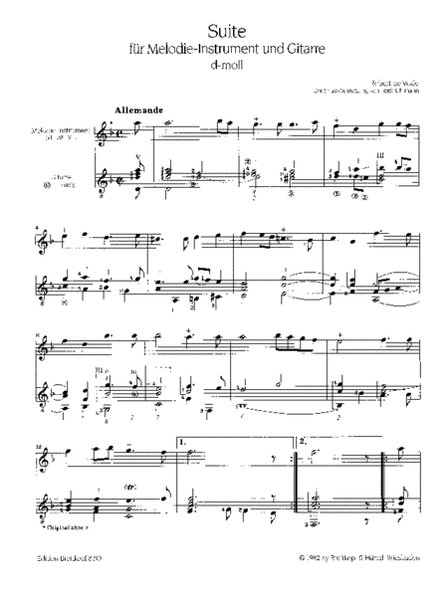Suite in D minor
Details
Description
SKU: BR.EB-8210
Composed by Robert de Visee. Edited by Ferdinand Uhlmann. Solo instruments; Softcover. Edition Breitkopf. Suite; Dances/marches; Renaissance/early Baroque; Baroque. Score. 16 pages. Breitkopf and Haertel #EB 8210. Published by Breitkopf and Haertel (BR.EB-8210).ISBN 9790004175507. 9 x 12 inches.
Robert de Visee (1650? to 1725?), guitarist, theorbist, singer and composer, was employed at the court of Louis XIV. as musician and guitar teacher to the King He was highly esteemed in musical circles and published three volumes of works with royal privilege. Two books, each containing 12 suites and various single movements for five-chord baroque guitar in French tablature, appeared in Paris in 1682 and 1686. At the close of each book, de Visee notated a selection of his guitar pieces in the french treble clef with figured bass: "in order to content those who want to play my works on other instruments" - as he stated in the introduction to his guitar books. A rendition of de Visee's solo pieces is only possible on a tenchord baroque guitar in the then customary tuning. The arrangement for our six-stringed guitar often necessitates rather important changes in the original setting. The six-stringed guitar cannot always convey the original sound of the baroque guitar. For this reason, the editor has chosen to arrange the present suite from the second guitar book (1686) for a melody instrument with guitar continuo, in accordance with de Visee's own recommendation. Although the arrangement is based on the version notated in treble clef, the tablature was also taken into consideration regarding the harmony and ornaments (in parentheses).The figured bass was generally conceived for any accompanying instrument (keyboard or plucked instrument, often with additional bass support through the use of a cello or bassoon). Hence, there is nothing objectionable to a performance on our modern-day guitar.
aus Livre de Pieces pour Ja Guitarre, Paris 1686.


 Share
Share